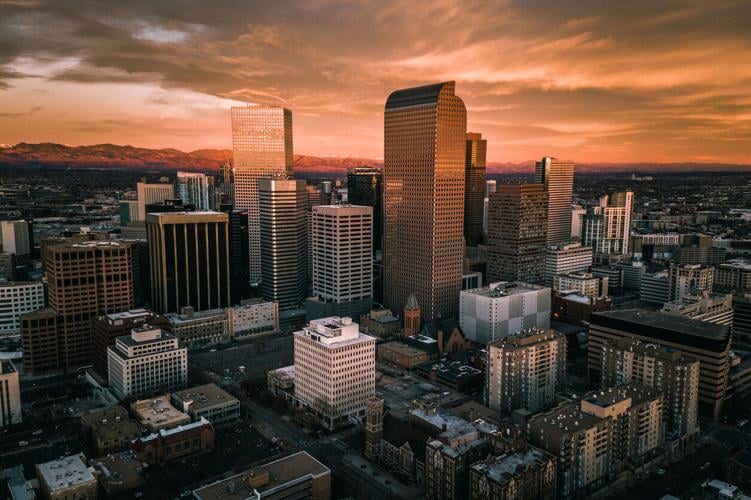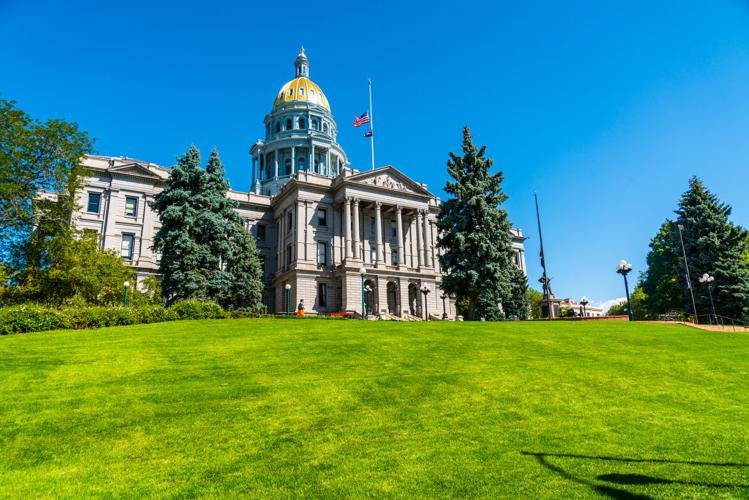Restaurant Law Center files lawsuit against Denver alleging it violated federal energy efficiency law
Denver’s Energize Denver electrification program hit another snag when a group led by the Restaurant Law Center filed a lawsuit against the city alleging the regulations violate a federal law that prohibits the city from regulating the energy efficiency of consumer and commercial products.
Both the State of Colorado and the City and County of Denver were sued by apartment owners and others against both state and city regulations concerning large building emissions last year.
The Colorado Air Quality Control Commission passed Regulation 28 in August, which requires owners of buildings larger than 50,000 square feet to reduce energy use by 7% by 2026 and 20% by 2030.
Denver’s 2021 Energize Denver Renewable Heating and Cooling Plan pertains to buildings larger than 25,000 square feet in Denver.
Laura Schwartz, spokesperson for Denver Community Planning and Development, told The Denver Gazette in March 2023 that residential single-family homeowners and single-family renters don’t have to worry about the new commercial code requirements, which only apply to apartments, residential condominiums, and townhouses.
The responses by the governments in both pending cases ask for dismissal of the complaints, saying in the state case that the plaintiffs do not have standing to sue, and in the Denver case, on standing grounds as well as for failing to state a cause of action under federal rules of civil procedure.
In the new Denver case, the plaintiffs are attacking the building codes that have been created under the Energize Denver program that specifically prohibit the installation or replacement of natural gas fired appliances including space heating and hot water heaters in both new construction and when replacement of existing equipment at the end of its useful life.
Angelo Amador, executive director of the Restaurant Law Center, an independent public policy organization affiliated with the National Restaurant Association, told The Denver Gazette: “Denver City and County do not have the authority to do this. Energy policy is set up at the national level, and there’s a law that forbids them from doing what they’re trying to do by trying to make illegal what is legal at the federal level.”
Amador said the trend he sees in such local regulations has been backing away from enacting them in California as the result of a 2019 9th Circuit Court of Appeals case, California Restaurant Association v. City of Berkely.
In that case, the city passed an ordinance making it illegal to install natural gas pipelines in new construction.
The Court ruled that in enacting building codes that prohibited natural gas piping, the city had violated the federal Energy Policy and Conservation Act (EPCA), which expressly preempts state and local regulations concerning the energy efficiency of gas appliance.
The Court held that the city was trying to do indirectly what it could not do directly, which was to prevent the use of natural gas appliances by the back-door expedient of prohibiting the installation of pipes and infrastructure to provide fuel to the appliances.
This, the Court said, violates the intent of Congress to create a uniform system of addressing appliance energy use to prevent a multiplicity varying regulations at state and local levels.
“States and localities can’t skirt the text of broad preemption provisions by doing indirectly what Congress says they can’t do directly,” according to the ruling. “EPCA would no doubt preempt an ordinance that directly prohibits the use of covered natural gas appliances in new buildings. So, Berkeley can’t evade preemption by merely moving up one step in the energy chain and banning natural gas piping within those buildings. Otherwise, the ability to use covered products is “meaningless” if consumers can’t access the natural gas available to them within the City of Berkeley.”
The plaintiffs’ opinion in the Denver case is that the law is clear: By requiring owners to replace natural gas appliances with electric alternatives, the city is violating the federal preemption law.
Denver’s Energize Denver program is intended to reduce carbon emissions and clean up Denver’s air.
“These progressive new building codes were the result of a strong collaboration between the city and the community,” said then-Mayor Michael B. Hancock in 2023. “Denver has spoken loud and clear that taking climate action is a top priority – codes like these will help get us to zero emissions by 2040.”
According to the city, 11.76% of Denver’s GHG emissions comes from commercial buildings. Combined, commercial and residential use of gas comprise 24% of the city’s total GHG emissions.
The Denver plan calls for eliminating GHG emissions and making Denver’s electrical grid 80-100% renewable by 2030.
The City and County of Denver declined comment on ongoing litigation.






